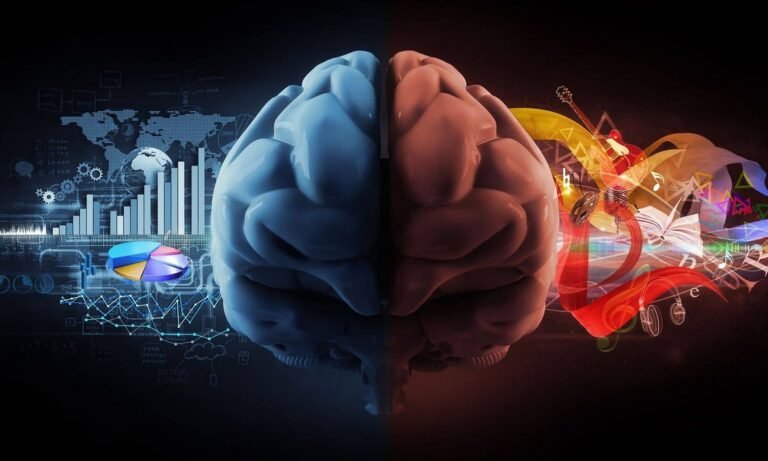Scientific Experimentation
The Ethical Compass: Experimentation is a cornerstone of scientific advancement, a term that encompasses the rigorous and systematic conduct of tests and trials. These experiments are not just confined to inanimate subjects or theoretical simulations; they often involve living beings, including humans and animals. The practice of experimentation in scientific research is a subject that stirs deep ethical considerations and debates.
At its core, experimentation is defined as a procedure that tests a hypothesis, which is a prediction of cause and effect or the predicted outcome of changing one factor in a situation. It is a controlled examination of cause and effect, integral to the scientific method. This method involves making observations, asking questions, stating hypotheses, performing experiments to test these hypotheses, and drawing conclusions based on the results.
When it comes to experimentation involving humans and animals, the stakes are significantly higher. The ethical implications of such experiments have been the subject of scrutiny and regulation for decades. The fundamental question that arises is: How do we balance the potential benefits of scientific research against the rights and welfare of its subjects?
Human Experimentation
Human experimentation has led to some of the most significant medical and scientific breakthroughs. However, history is also marred with instances where such experiments were conducted without consent or with disregard for the well-being of participants.
Today, strict ethical guidelines and oversight committees are in place to protect human subjects in research. Informed consent, confidentiality, and the minimization of risk are key principles that govern human experimentation.
The topic of human experimentation is a deeply complex and sensitive subject that touches on the core principles of ethics in research. The history of human experimentation is marred by instances where ethical boundaries were crossed, often with devastating consequences for the individuals involved. The ethical issues surrounding human experimentation have been a subject of intense scrutiny and debate, leading to the establishment of stringent guidelines and protocols to protect the dignity and rights of participants.
Human experimentation has a complex and often disturbing history. Here is a list of some notable instances:
- Nazi Germany Experiments: During World War II, Nazi doctors conducted a series of brutal experiments on prisoners in concentration camps, including exposure to infectious diseases, sterilization, and forced hypothermia.
- Tuskegee Syphilis Study: From 1932 to 1972, the U.S. Public Health Service conducted a study on the natural progression of untreated syphilis in 399 African American men, who were not informed of their condition and were denied treatment even after penicillin became the standard cure in 1947.
- MKUltra Project: The CIA conducted experiments from 1953 to 1973 to identify and develop drugs and procedures to be used in interrogations and torture, with the aim of weakening individuals and forcing confessions through mind control.
- Stanford Prison Experiment: In 1971, a psychological experiment simulating a prison environment showed how social expectations could influence behavior, but it was criticized for unethical manipulation and lack of informed consent.
- Guatemala Syphilis Experiment: Between 1946 and 1948, U.S. researchers deliberately infected Guatemalan prisoners, psychiatric patients, and sex workers with syphilis without their consent.
- Human Radiation Experiments: During the Cold War, the U.S. government conducted experiments on unknowing subjects, exposing them to radiation to study its effects.
- Willowbrook Hepatitis Studies: From 1956 to 1971, mentally disabled children at the Willowbrook State School in New York were intentionally infected with hepatitis in an attempt to track the development of the viral infection and test vaccines.
- The iCOMPARE and FIRST clinical trials: The iCOMPARE clinical trial investigated the effects of extended work shifts on first-year medical residents and patient care outcomes. It was a controversial study due to ethical concerns regarding the lack of informed consent and potential risks to both patients and residents. The FIRST trial examined the impact of flexible work hours on surgical trainees and their patients, also raising ethical questions.
- Both trials conducted accross the U.S. in 2015 aimed to assess the balance between resident education, patient safety, and the quality of care provided under different work-hour policies. Results from these trials contribute to ongoing debates about optimal work hours in medical training programs and their implications for healthcare delivery.
Read More
These examples reflect a range of ethical violations, including lack of informed consent, exploitation of vulnerable populations, and failure to provide necessary treatment. They have led to the development of stricter ethical standards and regulations for human experimentation, such as the Declaration of Helsinki and the Belmont Report, to protect the rights and welfare of research participants.
Such historical abuses have led to the development of ethical standards that govern research involving human subjects. These standards are built on principles such as respect for persons, beneficence, and justice. Respect for persons involves recognizing the autonomy of individuals and protecting those with diminished autonomy. Beneficence requires that researchers minimize harm and maximize benefits, while justice demands a fair distribution of the burdens and benefits of research.
The Declaration of Helsinki, established by the World Medical Association, is one of the most significant documents in research ethics. It provides guidelines that emphasize the importance of informed consent, the right to withdraw from research, and the need for research to have a scientific basis that can justify the potential risks to participants.
In the modern context, ethical human experimentation is crucial for advancing medical knowledge and improving healthcare. However, it must always be conducted with the utmost respect for the rights and welfare of participants. Ethical oversight committees play a vital role in ensuring that research proposals meet ethical standards and that participants are fully informed and voluntarily consent to take part in studies.
The conversation about ethical human experimentation is ongoing, and it is essential to continue educating both researchers and the public about the importance of ethics in research. By doing so, we can honor the legacy of those who suffered from past abuses and work towards a future where research is conducted responsibly, ethically, and with the highest regard for human dignity.
Animal Experimentation
Animal experimentation, also known as vivisection, on the other hand, raises questions about the moral status of non-human animals and their capacity to experience pain and suffering. While the use of animals in research has contributed immensely to our understanding of biology and the development of treatments, it also necessitates a careful ethical approach.
Here is a concise list of some common types of animal experimentation:
- Basic Research: This involves experiments designed to answer scientific questions that may be relevant to medical advancements in the future.
- Genetic Modification: Animals are genetically altered to study the effects of specific genes, often related to human medical conditions.
- Regulatory Testing: Standardized testing to assess the safety and efficacy of products such as medicines, chemicals, and cosmetics.
- Education and Training: Use of animals for educational purposes in medical and veterinary training.
- Drug Efficacy and Toxicity Testing: Testing the effectiveness and safety of new drugs before they are used in humans or other animals.
Read More
Animal experimentation, a subject that stirs a complex blend of emotions and ethical considerations, has been a cornerstone of scientific advancement and medical breakthroughs. The practice dates back to ancient times and has played a pivotal role in the development of life-saving treatments for both humans and animals.
The use of animals in research is a topic that sits at the intersection of scientific necessity and ethical responsibility. On one hand, it has undeniably contributed to significant medical progress. For instance, animal testing has been instrumental in the development of vaccines, treatments for serious health conditions, and ensuring the safety of new drugs. The scientific community emphasizes that the biological similarities between humans and certain animals, like mice, which share more than 98% of our DNA, make them indispensable in understanding complex biological processes and diseases.
On the other hand, the ethical debate surrounding animal experimentation cannot be overlooked. It raises profound questions about the rights of animals and the moral implications of causing them potential pain and distress for the sake of human benefits. Organizations and individuals advocating for animal welfare argue against the practice, highlighting the suffering it can inflict on sentient beings and questioning the morality of such actions.
The conversation around animal testing is evolving. Regulations such as the 3Rs (Replacement, Reduction, and Refinement) aim to minimize the number of animals used, replace them with alternative methods when possible, and refine procedures to alleviate or minimize potential suffering. Technological advancements are gradually paving the way for alternatives, such as computer modeling and in vitro testing, which could potentially reduce the need for animal subjects in the future.
The ethical landscape of animal experimentation is one that requires continuous dialogue, balancing the pursuit of scientific knowledge with compassion and respect for all living creatures. It is a reminder that with great power comes great responsibility, and as we advance in our scientific endeavors, we must also evolve in our ethical considerations. As we navigate this delicate balance, it is crucial to remain informed and engaged in the discussion, understanding the implications of our choices and striving towards a future where scientific progress and ethical integrity can coexist harmoniously.
Experimentation Ethics
The dialogue on experimentation ethics is ongoing and evolves with our societal values and scientific knowledge. It is a testament to our collective responsibility to ensure that the pursuit of knowledge does not come at the cost of compassion and respect for life. As we continue to push the boundaries of what is possible through scientific research, let us also strengthen our commitment to ethical integrity and the humane treatment of all subjects involved in experimentation.
“Ask the experimenters why they experiment on animals, and the answer is, ‘Because the animals are like us.’ Ask the experimenters why it is morally okay to experiment on animals, and the answer is, ‘Because the animals are not like us’.”
– Charles Magel
The realm of research and experimentation is a vast and complex one, where the pursuit of knowledge often pushes the boundaries of what is known and unknown. At the heart of this quest lies a crucial aspect that cannot be overlooked: ethics in experimentation. Ethics serve as the compass that guides researchers through the moral landscape, ensuring that their work upholds the highest standards of integrity and respect for life.
Read More
The importance of ethics in research cannot be overstated. It is the foundation upon which trust between the scientific community and the public is built. Ethical research practices ensure that the rights and welfare of participants are protected, and that the pursuit of knowledge does not come at the cost of human or animal suffering. The historical examples of unethical research, such as the Tuskegee syphilis study and the experiments conducted on Nathan Schnurman, serve as stark reminders of the dire consequences when ethical considerations are cast aside.
Guiding principles have been established to navigate the ethical dilemmas that may arise in research. These include the respect for persons, beneficence, and justice. Respect for persons acknowledges the autonomy of individuals and the need to protect those with diminished autonomy. Beneficence involves the obligation to prevent harm and ensure the well-being of participants, while justice requires the equitable distribution of the benefits and burdens of research.
In the modern context, ethical research also encompasses the responsible use of animals in experimentation. Alternatives to animal testing, such as in vitro methods and computer modeling, are increasingly being developed and adopted. These alternatives not only reduce the number of animals used in research but also often provide more reliable and humane methods of testing.
The ethical landscape of research is ever-evolving, with new challenges emerging as science advances. Issues such as genetic editing, artificial intelligence, and data privacy bring forth new ethical considerations. Researchers must remain vigilant, constantly reevaluating their methods and ensuring that their work aligns with ethical standards.
In conclusion, ethics in experimentation is a commitment to conscientious research, reflecting society’s values and principles of humanity. As we explore the unknown, let us be guided by an unwavering ethical compass, ensuring that knowledge and morality advance together.
What’s More
The posts in My Blog feature reflective, story-driven pieces rooted in personal and societal insights.
The topics in My Interests explore abstract, philosophical ideas and their cultural and societal impact.
👁️ 9,457 Views















